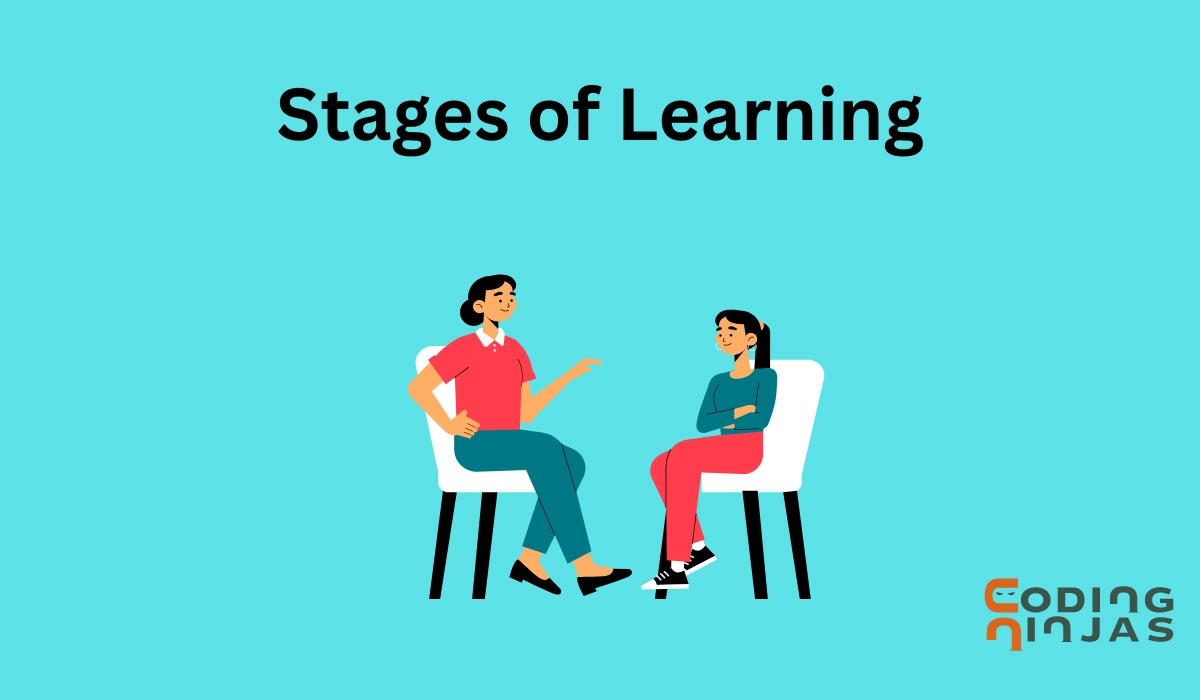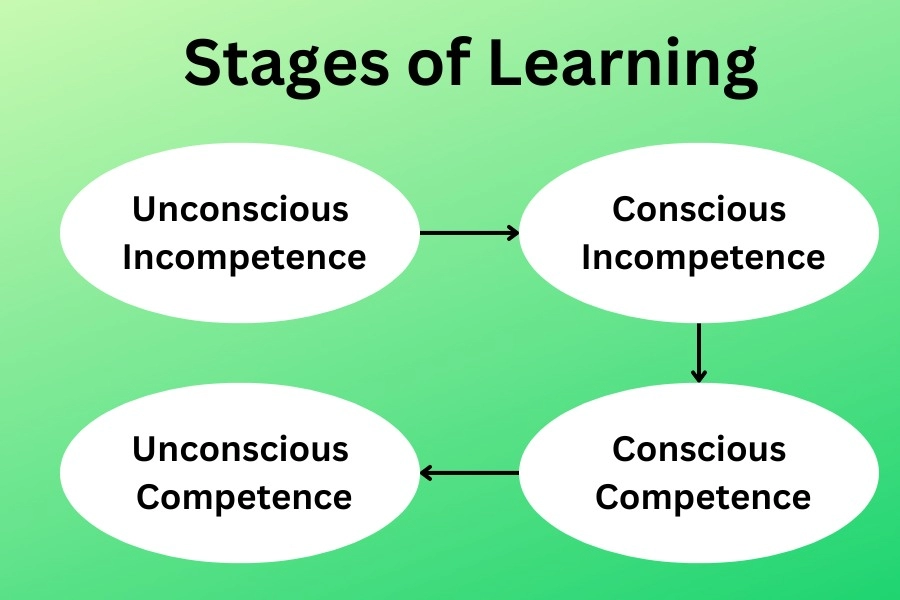Introduction
“Develop a passion for learning. If you do, you will never cease to grow.”
By: Anthony J. D’Angelo
As we learn a skill or behavior, we go through different important stages for our learning curve. Each stage helps to foster the development of an individual. There are mainly four stages of learning that an individual goes through.

We will learn about these four stages in detail.
Stages of Learning
Learning involves 4 stages:
- Unconscious Incompetence
- Conscious Incompetence
- Conscious Competence
- Unconscious Competence

Let's learn about each stage in detail.
Unconscious Incompetence
Unconscious incompetence is the first stage of learning. It is when an individual does not understand or know how to do a particular task and does not recognize the shortcomings. In simpler words, the individual lacks skill and is unaware of his/her deficiency. They lack the skills required for innovation.
-
Individuals may not recognize the importance of understanding a skill.
-
Unconscious incompetence is a starting point for self-awareness and motivation to learn and improve.
-
Self-Reflection, feedback, and a willingness to learn are crucial in overcoming unconscious incompetence.
Acquiring the required knowledge and skills can lead to progress in the stages of competence and finally reach to conscious incompetence stage.
Conscious Incompetence
The second stage is Conscious Incompetence. This is when individuals recognize their lack of knowledge and skill in a specific area. This realization is important for their growth and learning as they know the importance of acquiring those skills. During this stage, individuals seek out opportunities for improvement, such as seeking expert guidance.
-
It motivates individuals to seek out growth opportunities.
-
Feeling frustrated at this stage is normal, but it is an opportunity for growth.
-
Conscious incompetence shows that you have the awareness to identify the areas where you don't know much, which is a positive step forward.
Therefore, Conscious incompetence is a vital step in the learning process, and individuals reach to conscious competence stage after this.
Conscious Competence
The Conscious Competence stage the third stage where an individual acquires knowledge, learns tools, and develops skills in a specific area. However, challenges may arise in this stage. Individuals in this stage must consciously apply their new skills to be effective, which can be difficult. With practice and experience, individuals can reach a higher level of skill and proficiency.
-
Conscious competence involves being aware of the steps involved in performing the skill.
-
Individuals in this stage can perform a skill, but it requires conscious effort and focus.
-
It is a valuable step towards mastery, demonstrating the ability to apply learned knowledge and skills.
With continued practice, conscious competence can evolve into unconscious competence, where skills become automatic and effortless.
Unconscious Competence
The fourth stage is Unconscious Competence when an individual becomes so skilled at something that they can do that task effortlessly without even thinking about it. People at this stage are so skilled at their task that it becomes automatic and natural.
Unconscious competence is the highest level of mastery, achieved through extensive practice and experience.
-
Unconscious competence allows individuals to focus on other things while effortlessly performing the skill.
-
Those in this stage may not even know how skilled they are because the skill has become second nature to them.
- Unconscious competence comes from great practice and experience in a particular area.




